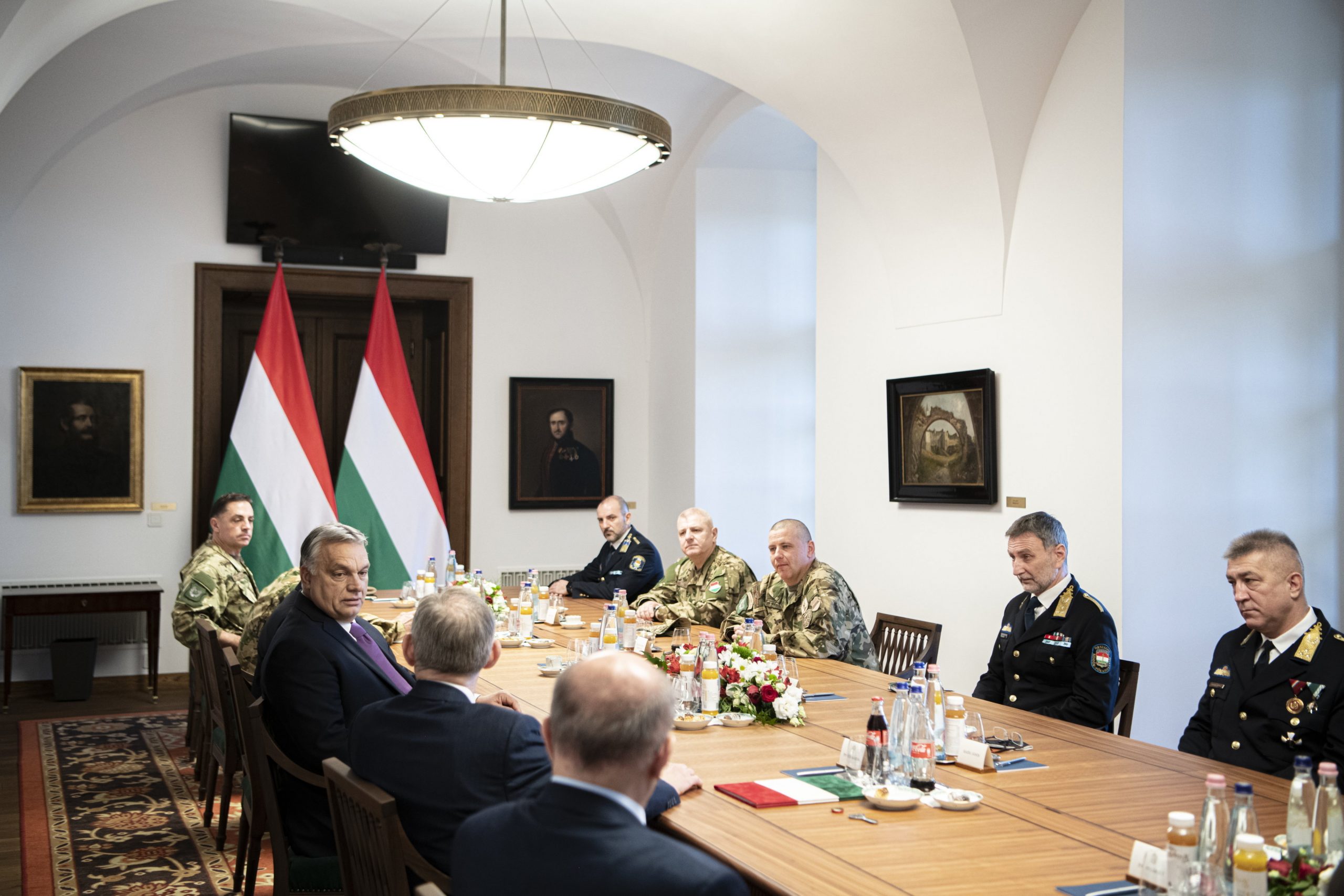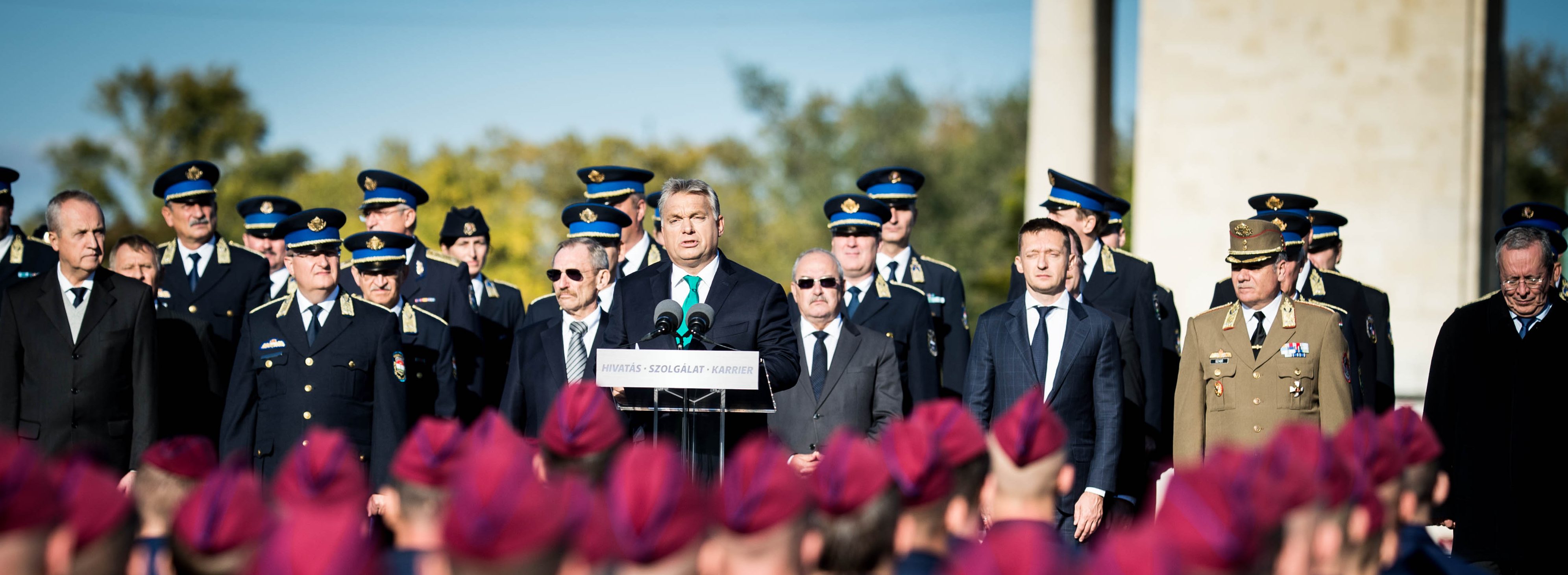
“Therefore, we protect the borders, stop migrants, side with victims, condemn and eliminate the prison business, raise our children in the spirit of healthy family and national awareness, support our police officers, and are proud of their achievements,” the Prime Minister stated.
He said after an era of liberal and global illusions, an era of sobriety “is knocking at our door”. This is what we are observing in Europe’s changing and ever tougher migration policy, the robust state action taken against the coronavirus, and the general reinforcement of state agencies in Europe.
He highlighted that the debate reaching philosophical depths – which one can also observe in the field of law enforcement – is about whether communities exist at all, and if so whether they are good or bad things, whether it is right or wrong to protect them. The answer to this question depends on whether the police is seen as an agency that guarantees the security of our common lives, or as an armed state agency which blocks the path of individual fulfilment with the force of the law.
Today, the answer of the Hungarian State is, Mr Orbán said, that we should see it as valuable behaviour which commands respect if someone is able to subject their selfish inclinations to the interests of the community, “to show self-control instead of shamelessness, humility instead of a lack of restraint”. Therefore, today’s constitutional rules, constitutional order and governmental system look upon the existence and work of the police as something necessary which controls, keeps in check – in the interests of the community – “our worse selves which sometimes take over,” he said.
One of the practical consequences of this seemingly abstract debate is, he continued, that those who see collective interests and protective legal rules as an unnecessary restriction on the individual’s freedom tend to support migration and the liberalisation of the use of drugs, hold the rights of criminals in higher esteem than those of victims, seek to weaken children’s natural gender identities instead of reinforcing them, and also want to restrict the work of the armed forces.
“We, however, the other party to the debate support a balance between the individual and the community. In our communities – such as family and nation – we see not a nuisance, not a restraint, but the possibility of a good and beautiful life,” the Prime Minister said, stating that “time, too, is proving us right” in this debate.
Mr Orbán highlighted that the former and current members of the 100-year-old police force are tied together by their integrity in service.
At the same time, he observed that there is not a single period of 100 years in Hungarian history whose every moment we could be proud of, and there is likewise not a single line of work – in particular, in the realm of state service – whose moral resolve has not been put to the test by these past 100 years. The police force is no exception, and of this he also has personal experience as a member of anti-communist resistance decades ago who was subjected to police procedures, he added.
The Prime Minister stressed, however, that not even “dark tones” and “doubtful periods” override the fundamental fact that in the past 100 years the Hungarian police force and Hungarian police officers have stood their ground, and today they can proudly profess themselves to be members of a great organisation which renders a great national service.
He also said the government appreciates the work of police officers, and seeks to recognise it in terms of greater financial reward, and while he is well aware that there are yet things to do in this department, the intention is there.
Mr Orbán finally stressed that the work of police officers is important not only in Hungary as their activities are equally important on the international scene.
In today’s chaotic world, order, orderliness and security have become particularly precious “commodities” and their value will continue to increase even further, he said, adding that the positions Hungary has achieved in the world economy and diplomacy are also owing to the fact that the country can function amidst orderly and safe circumstances, and it is in these circumstances that the economy can thrive.
This is the reason why police officers can experience day in, day out that the Hungarian people trust them, the Prime Minister said in conclusion.

